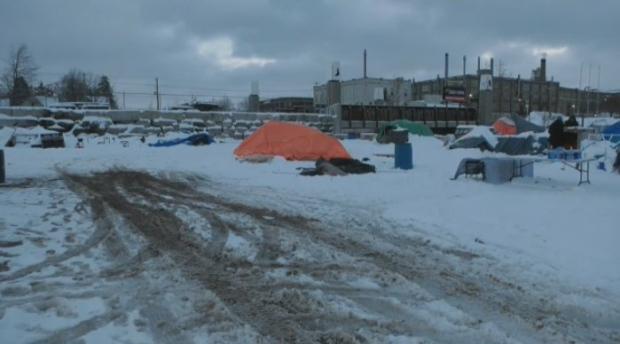An Ontario Superior Court justice has refused to allow the Region of Waterloo to dismantle a homeless tent city built on a half-acre empty gravel lot in Kitchener, Ontario, noting that shelters do not allow couples to stay together, and will not allow drug use and substance abuse.
In a 52-page ruling issued on Jan. 27, which could affect homeless camps in other parts of Ontario, Justice Michael Valente struck down the municipality’s bylaw and denied an injunction to enforce it. The Regional Municipality of Waterloo has a bylaw prohibiting any structure, including a tent, from being built on public property.





